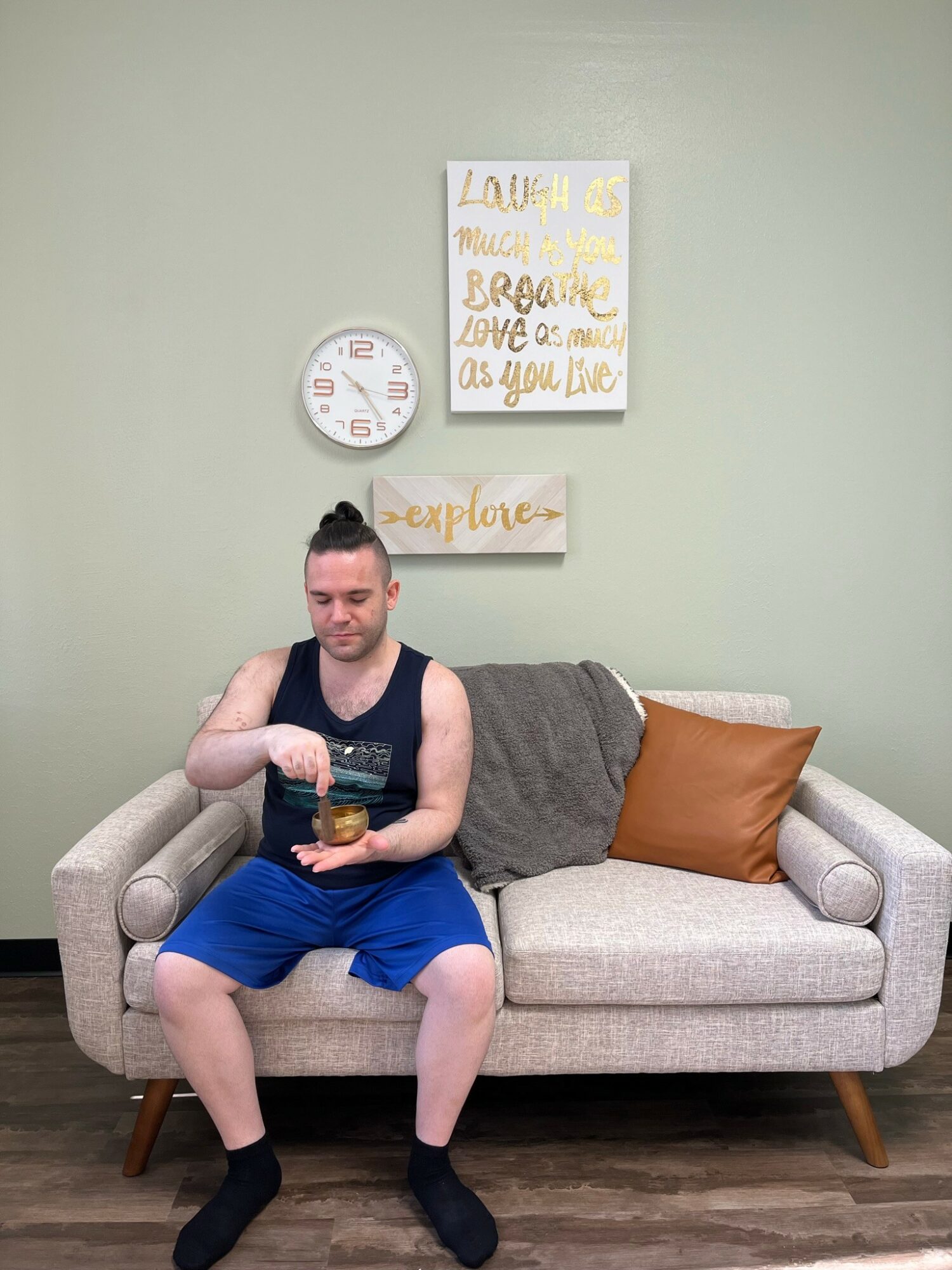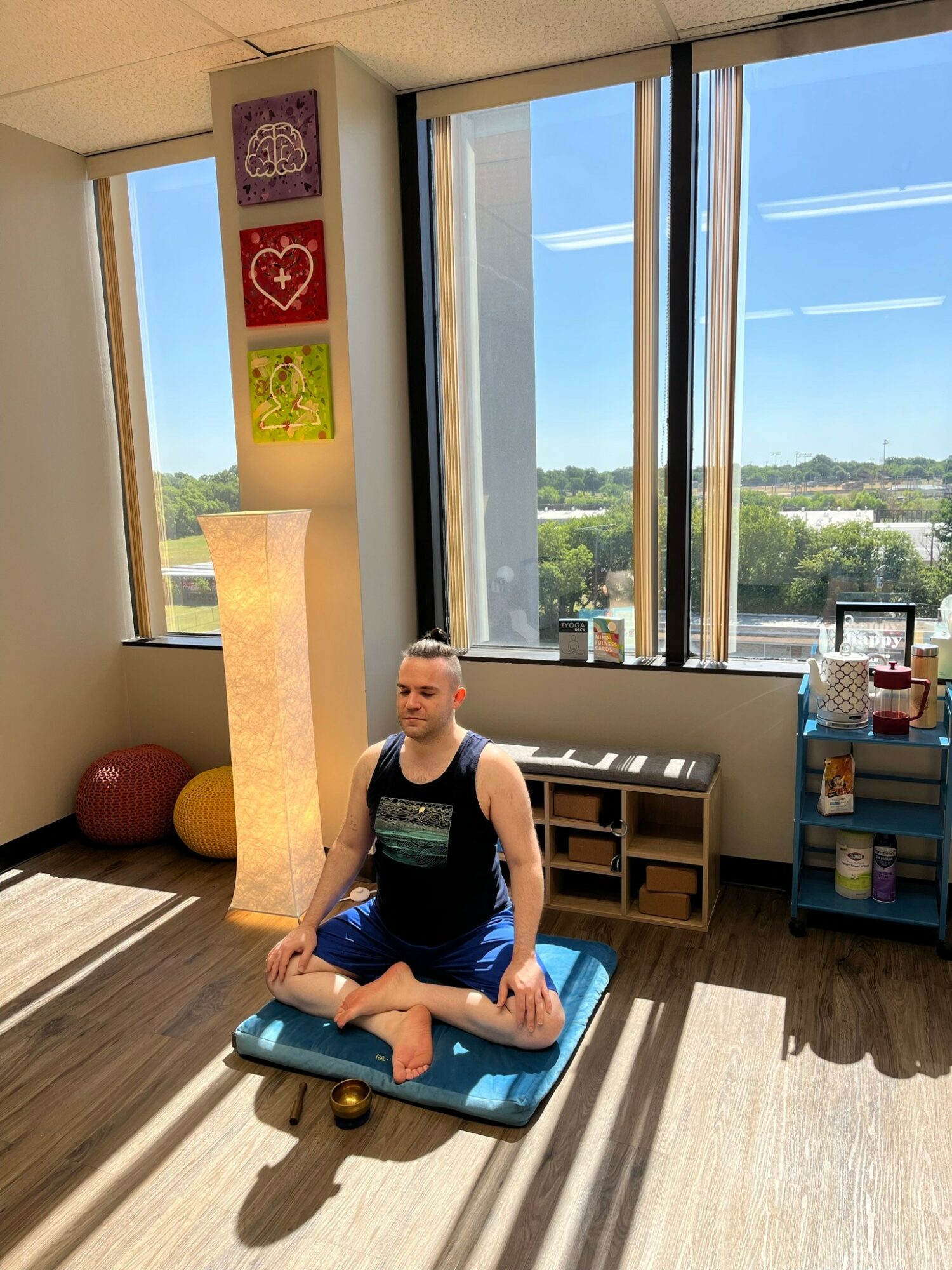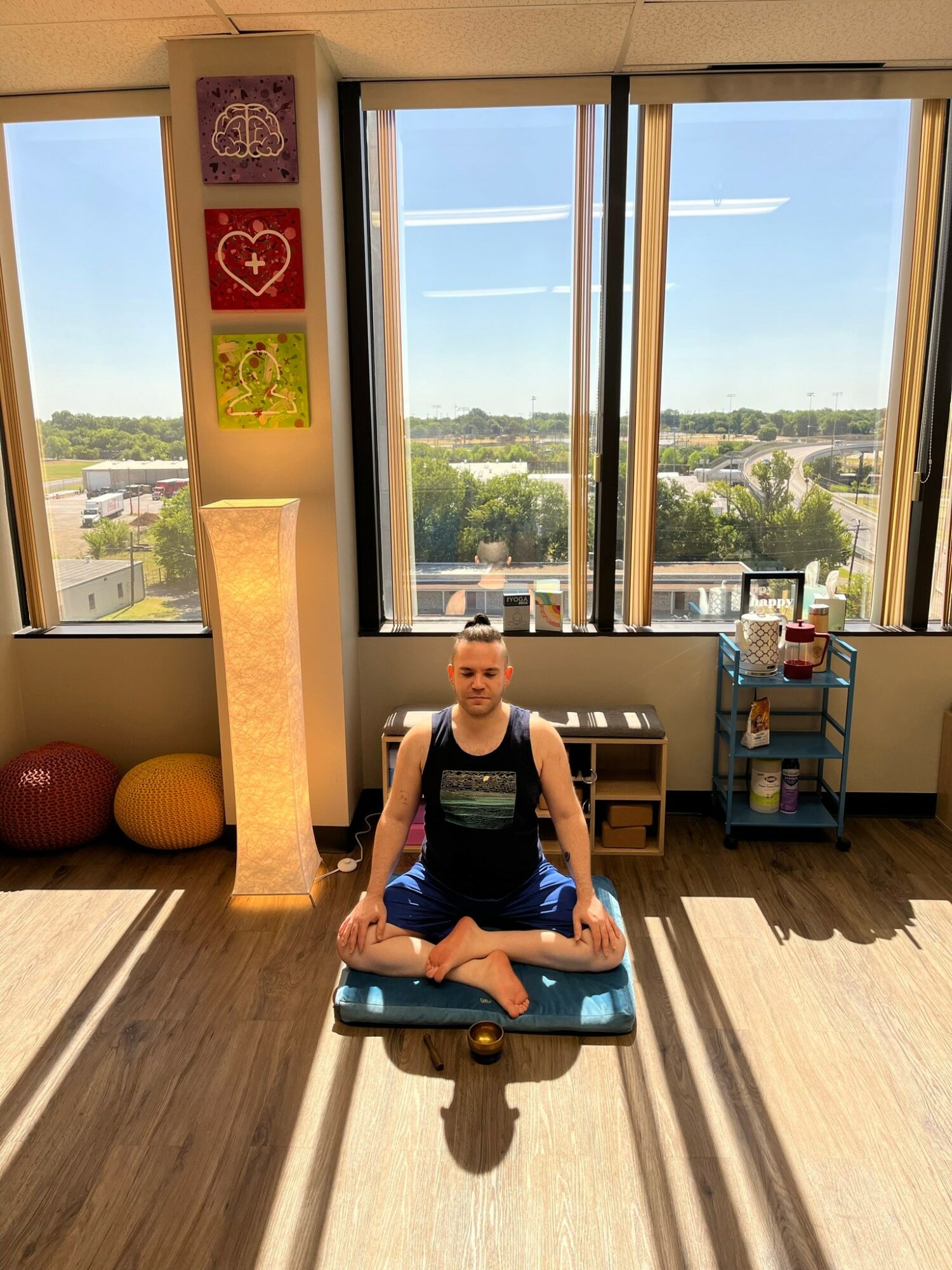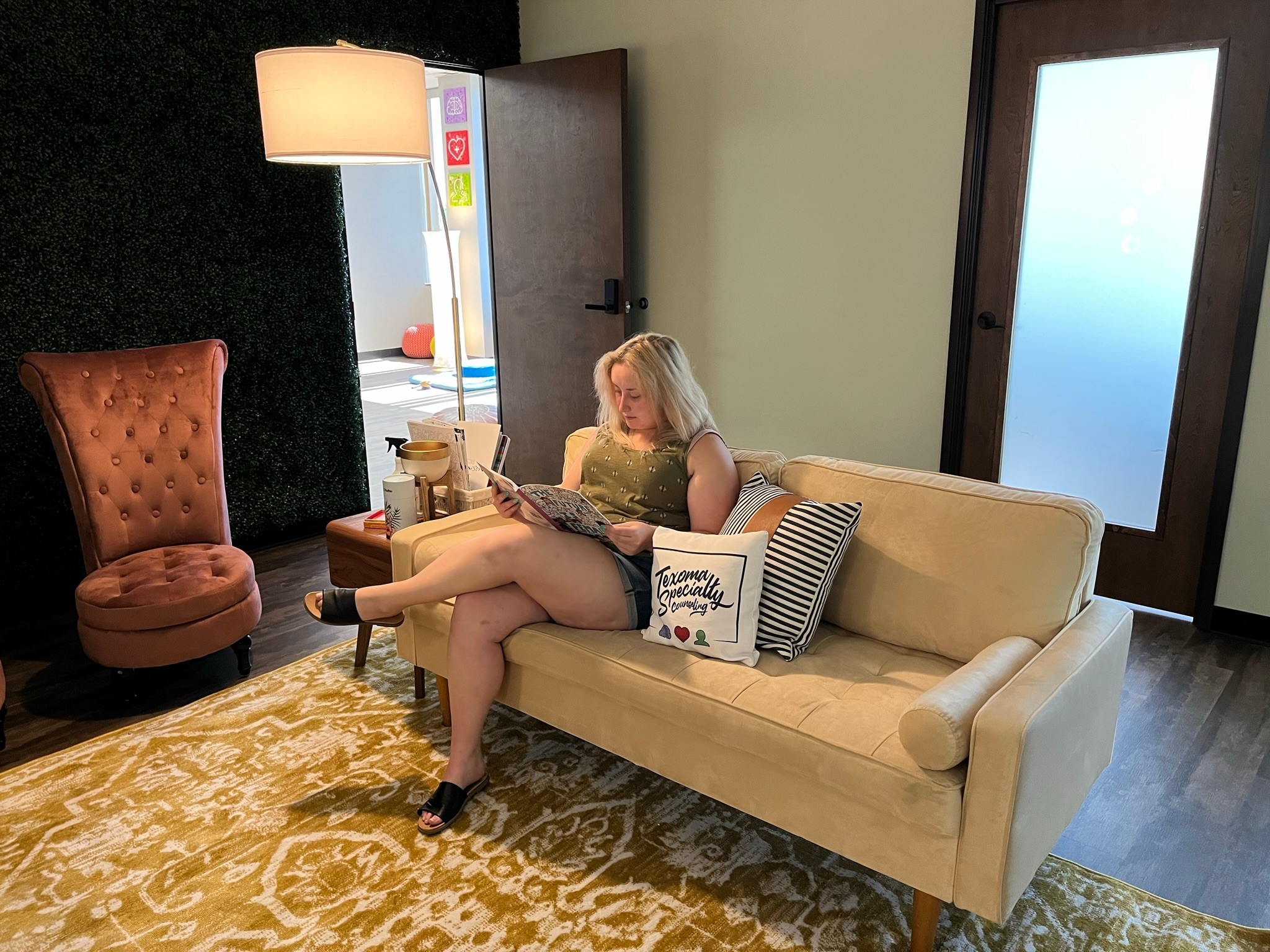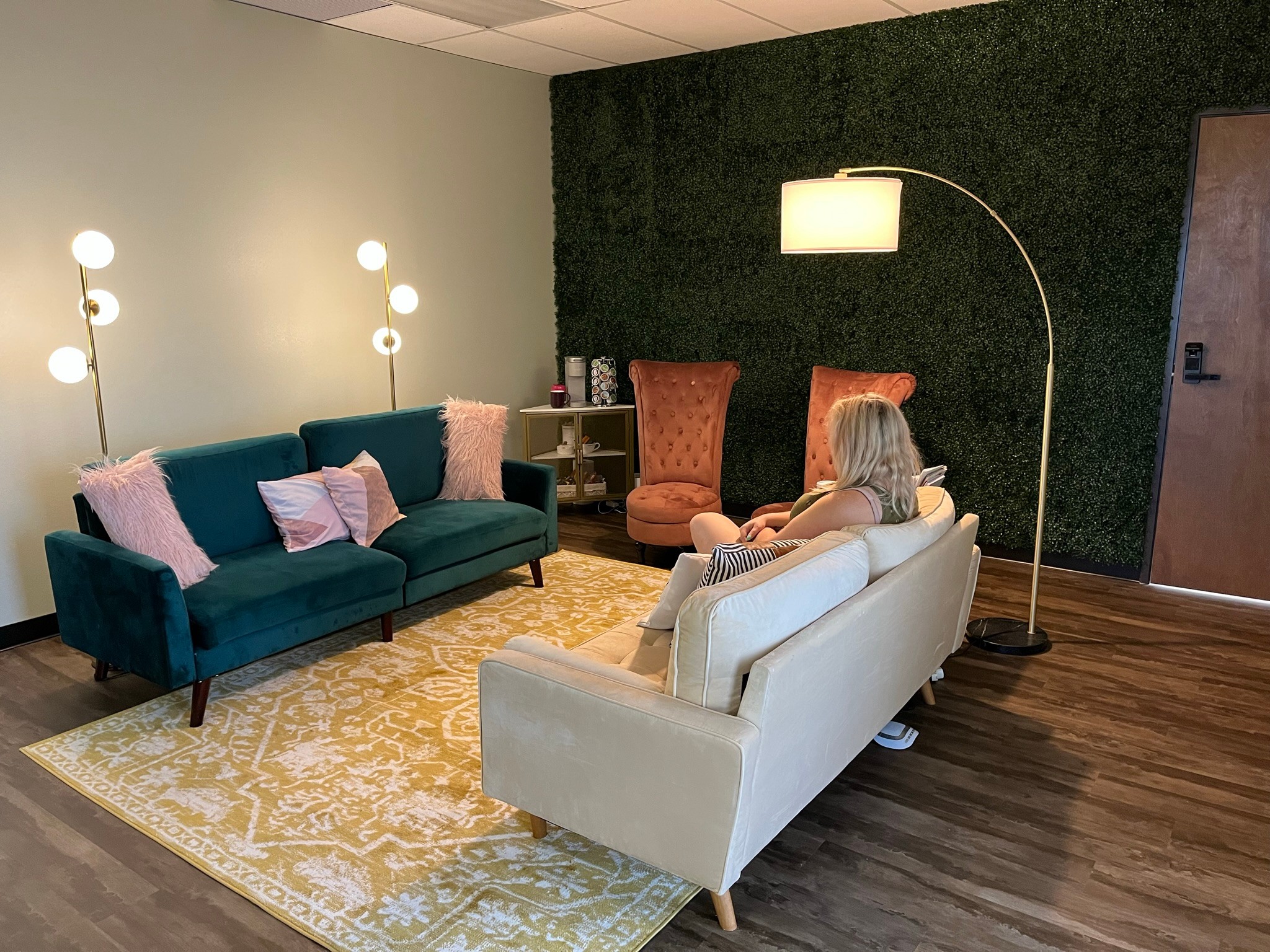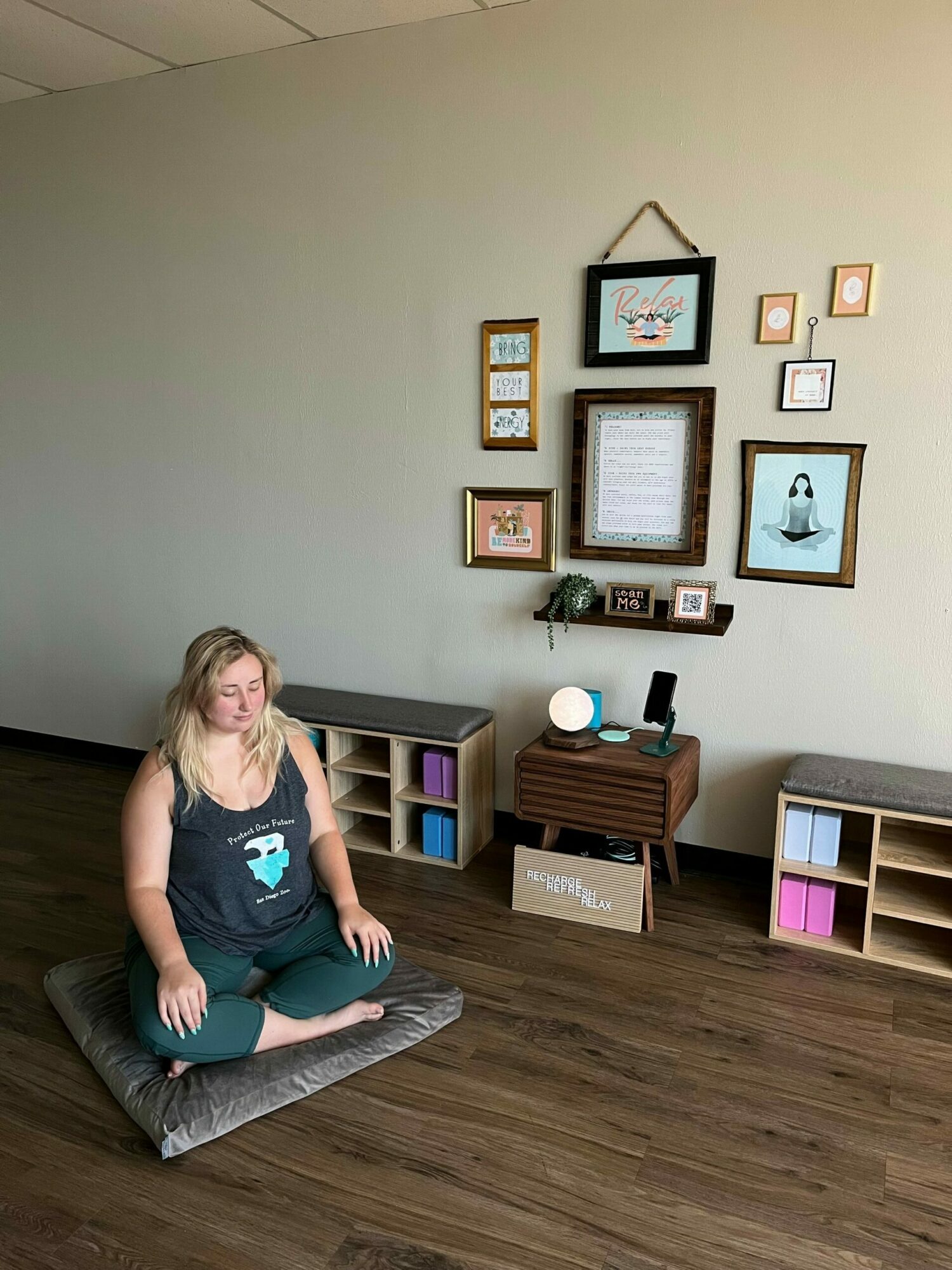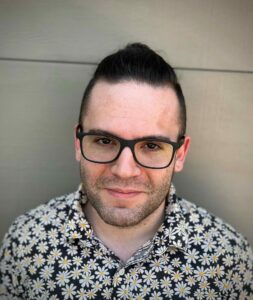
Today we’d like to introduce you to Grant Rodrigue.
Alright, so thank you so much for sharing your story and insight with our readers. To kick things off, can you tell us a bit about how you got started?
I have always been interested in eastern culture, dabbling in various forms of meditation practice over the years. Over the course of the COVID-19 pandemic, around April 2021, I returned to my fascination with meditation. Up to that point in the pandemic, I was depressed, isolated, and overly anxious about the future, and I hadn’t physically touched another human in almost a year. With all of my family back in Louisiana, I only ever saw my coworkers during that time. Everything felt cold and lifeless.
Through mindfulness and heart-focused guided meditations, I was able to do a lot of healing and became more mentally stable and resilient to the volatile landscape that the last few years have been. Developing a more consistent meditation practice helped me to see the cumulative benefits it could have on a person’s mind. Scientific research backs up the efficacy of mindfulness meditation, but I was really feeling different; more at ease, present in my own life, and able to be less reactive.
I realized how important this type of inner work is, especially with everything happening in the world currently. I would tell my friends, family, and coworkers about it- always wanting to share it. One day at work while listening to a podcast featuring David Nichtern talking about mindfulness meditation, David mentioned that he was opening enrollment for a meditation teacher training program. David is a meditation teacher of over forty years and was a student of Tibetan Buddhist meditation master Chögyam Trungpa. I felt compelled to learn more. It felt like a great opportunity to deepen my own practice and really make a difference helping people reduce their suffering.
By early February of this year, I had successfully completed the teacher training and was more sure than ever that this was something I really wanted to do with my life. With encouragement and support from friends and family, I pooled the money needed to start my business.
Would you say it’s been a smooth road, and if not, what are some of the biggest challenges you’ve faced along the way?
The first obstacle reared its head before I even signed up for the teacher training. I have a high degree of social anxiety, so the thought of getting in front of groups of people and teaching sounded absolutely terrifying. Lots of fear of looking like a fool, taking myself much too seriously. There was a lot of thinking and going back and forth on the idea. Eventually, it became clear that this was something I wanted enough to where letting anxiety derail me was not an option. Sharing the mental toolkit of meditation with people is important to me, and not taking this step on my path would be something I’d regret.
Developing my own consistent meditation practice and fitting that into my day was an exercise in discipline. When starting to make it a regular part of life, the mind tries to throw any excuse it can to not sit down on the cushion. There is the constant urge to always be doing something, and the thought of “doing nothing” seems counterproductive to the mind when it is accustomed to going full stop all the time. The constant buzz of activity in daily life makes the act of sitting seem like a crime. I have to remind myself that I will feel better for practicing, and the rest of my day will be more manageable and productive, contrary to what the mind thinks.
A big struggle for me was dealing with the fears of failure and success. It was very difficult to wrestle with the “what if” thoughts. I had never started any kind of business before outside of doing some freelance art and design work. Art was one thing, but dealing directly with the minds of others was a different animal. Legal jargon was difficult to make sense of and made my head spin. A key realization was that I needed to soften and open to what was in front of me, not hypotheticals or things that had not actually happened. I needed to develop the trust that if I remained open-minded and curious, I could respond skillfully to what presented itself. A healthy mindset is to take the unexpected or adversity as an opportunity to grow and adapt.
Another obstacle is mustering the humility to accept help when it is offered. It is very easy to feel weak and worthless when help is needed. Humility and gratitude make it much easier to succeed when there are people who genuinely want to render assistance. People help not because of a lack of worthiness of an individual but because they see worth and want to assist in its fruition. The world is a network of interdependence. We need each other.
We’ve been impressed with Grateful Sun Mindfulness LLC, but for folks who might not be as familiar, what can you share with them about what you do and what sets you apart from others?
I teach mindfulness meditation. “Mindfulness” is a widely used and often misunderstood or misrepresented term. I am not here to sell “enlightenment” or to give people a “feel good” solution. I am no one’s guru. I am here to give people the practical tools to get to know their own minds on a deeper level and to be more open-hearted and present in their lives.
The meditation practice I teach is rooted in Tibetan Buddhism but is presented in a secular fashion. One does not need to believe in any spiritual or religious system to experience the benefits. It has to do with placing attention on the breath to anchor oneself in the present moment and gently noticing thoughts arising in the mind without bias or judgment so as to not be carried away by them. Benefits of this practice include strength, stability, and clarity of mind:
Strength- Increased ability to readily direct attention where one chooses.
Stability- Increased focus. Resilience to being carried away by thoughts and strong emotions.
Clarity- Cutting through the mental narrative or story about what is happening. Seeing things from a wider, less constricted viewpoint. Becoming less identified with the thinking mind.
Something commonly reported by practitioners is reduced reactivity to unexpected events or the actions of others and increased ability to respond thoughtfully.
What sets my instruction apart is that I refrain from adding “fluff.” First and foremost, I want people to understand the information I present and be able to make use of it in an effective way. Language is important to me, so I do my best to provide lessons in simple and easy-to-understand terms. I want to be direct with people, as to cut through unnecessary confusion while maintaining a common ground of mutual respect.
Currently, I offer individual instruction to anyone aged 13+; experience with meditation is not required. One-hour sessions are available virtually or in person in Carrollton, with virtual group sessions coming soon. Please send inquiries to: gsmindfulness@gmail.com
I have recently teamed up with Dr. Stephanie Waitt, LPC-S, CEDS of Texoma Specialty Counseling (TSC), at her new location in Sherman. There, I provide in-person group sessions on Saturday mornings. Our free “Soft Opening” event was this past Saturday, July 23rd. We had a room full of people participating in meditation led by myself, along with yoga and Pilates presented by several other instructors. It was a gratifying and uplifting experience to see the space come alive for the first time.
At TSC I offer a “Saturday Sangha” group, where people of all experience levels can come to meditate together and have open discussion about questions or experiences with their personal practices. I also have an eight-week “Intro to Mindfulness Meditation” series in the works that will commence when we get enough interest. This course is for those who wish to either begin or dive deeper into their personal practice of meditation. The first class in the series will be offered as a free, standalone course to help get people’s feet wet in the practice and garner interest in the series. The rest of the series will cover more subtle aspects of mindfulness and how to get the most out of daily practice. TSC also offers a “drop-in” meditation, where you can reserve a time slot in the space for yourself and meditate quietly on your own or with the help of pre-recorded, guided meditations. Available classes and gatherings at TSC can be found in the Mindbody app, by searching for Texoma Specialty Counseling, or via the following link: https://get.mndbdy.ly/m1wex62RVrb
The crisis has affected us all in different ways. How has it affected you, and any important lessons or epiphanies you can share with us?
A great piece of advice I have received is to “soften.” That single word has given me so much in terms of letting go of resisting circumstance, allowing myself to take a step back and more thoughtfully respond to adversity. Angry or frustrated because things are getting harder or not going according to plan? Soften. Having a rough time on the cushion while painful memories rise to the surface? Soften. Scared of the consequences of failure *and* success? Soften. Soften and open. Do not deny what is happening, but ask how you can best respond to it.
I have also developed something of a personal mantra amidst the current socio-political instability in this country: “There is no true enemy. There are only friends and teachers.” This helps me see others from a more compassionate viewpoint, even when they get under my skin or evoke anger and frustration. The line between friend and teacher is a fuzzy one. Everyone has the capability of being either or both. Any given person is doing the best they can with the mental and emotional resources they currently have. Even if someone enrages us to our core and we find their actions to be repulsive or evil, there is still something that can be learned from them from the way or context in which they act. Instead of just seeing someone’s actions as a statement of who they are, I try to see the pain and suffering behind the actions. Everyone has a real, human story of how they got to where they are. We would do well to hold each other in increased curiosity and compassion.
Pricing:
- 1-on-1 session (virtual or in Carrollton), 1 hour: $75
- Group Session (virtual), 1 hour (coming soon): $20
- Saturday Sangha (at TSC), 1 hour: $15
- Intro to Mindfulness Series (at TSC, coming soon) part 1, 1 hour: Free standalone course
- Intro to Mindfulness Series (at TSC, coming soon), parts 2-8, 1 hour each week: $140 total
Contact Info:
- Instagram: gratefulsunmindfulness
- Other:https://get.mndbdy.ly/m1wex62RVrb
